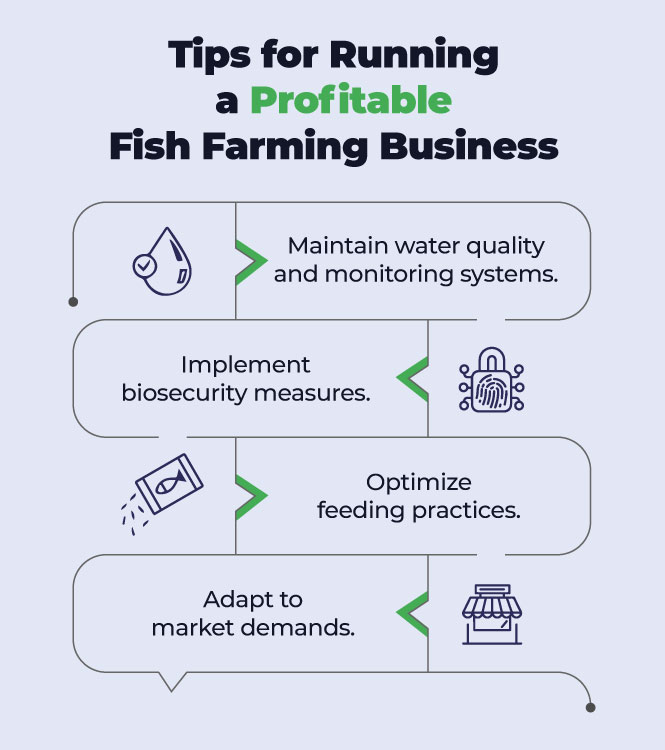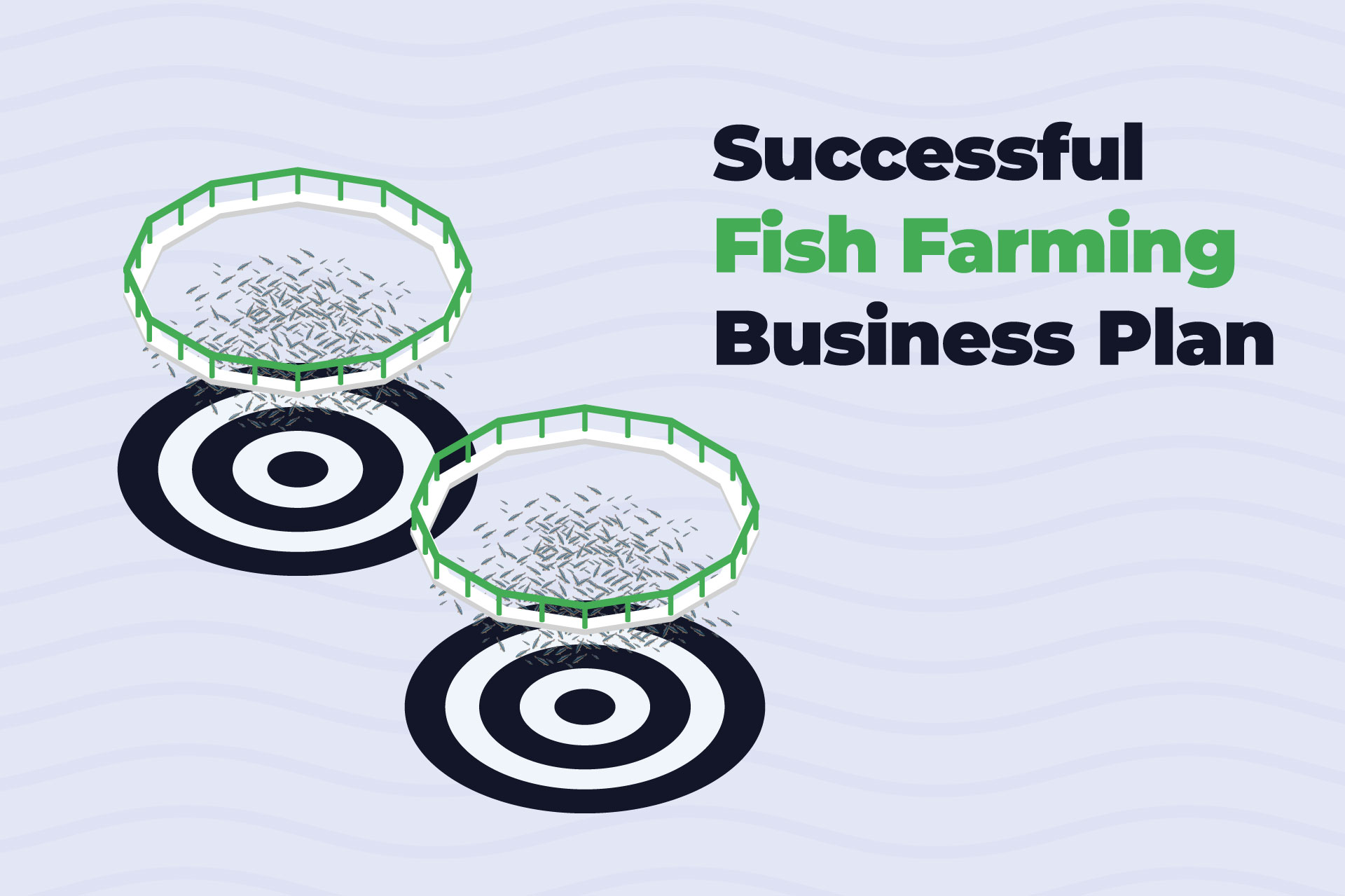Diving into Success with a Fish Farming Business Plan in 2023
Fish farming, also known as aquaculture, is a rapidly growing industry that offers promising opportunities for entrepreneurs and individuals interested in the agricultural sector. With the increasing demand for seafood and the depletion of wild fish populations, fish farming provides a sustainable solution while offering profitable returns. In this article, we will explore the key aspects of a successful fish farming business plan and guide you through the process of starting your own fish farm.
What is a Fish Farming Business Plan?
A fish farming business plan is a comprehensive document that outlines the key aspects of starting and running a successful fish farming venture. It serves as a roadmap and strategic guide for entrepreneurs, providing a clear understanding of the business goals, strategies, and operations involved in fish farming.
Essential Components of a Fish Farming Business Plan
To establish a successful fish farming venture, it is essential to develop a comprehensive business plan. The following components should be considered when creating your best business plan for fish farming:
Market Analysis
Before diving into the financial aspects, it is crucial to conduct a thorough market analysis. Understanding the fish farming market helps you identify potential customers, assess the competition, and determine the market demand for your products. Researching the preferences of consumers, their purchasing power, and the prevailing market prices will assist you in making informed decisions.
Startup Costs and Capital Investment
Starting a fish farming business involves various initial expenses. These may include the cost of land, construction or renovation of ponds or tanks, purchase of fish fingerlings, equipment, and other necessary infrastructure. Additionally, you need to account for administrative costs, licenses, and permits. By accurately estimating these startup costs, you can calculate the required capital investment.
Revenue Projections
To ensure a successful fish farming business, you need to develop revenue projections. Consider factors such as the species of fish you plan to farm, their growth rate, and the market demand. Estimate the potential sales volume and price per unit to project your income. Additionally, explore additional revenue streams, such as selling fish by-products or offering fish-related services.
Operational Expenses
Operating a fish farming business involves ongoing expenses that must be accounted for in your financial plan. These expenses may include the cost of fish feed, labor, utilities, transportation, maintenance, and administrative overheads. By identifying and analyzing these operational expenses, you can determine the profitability of your venture.
Financial Forecasting
Creating a comprehensive financial model is crucial for the success of your fish farming business. Use the revenue projections and operational expenses to project your income and expenses over a specific period, usually three to five years. A financial forecast will help you identify potential cash flow issues, plan for growth, and make informed financial decisions.
Funding Options
Once you have determined the financial requirements of your fish farming business, it is essential to explore funding options. While self-funding is an option, you may also consider loans from financial institutions, grants from government agencies, or attracting investors interested in the aquaculture industry. Thoroughly research and compare different funding sources to make the best choice for your business.
Risk Management
As with any business, fish farming comes with its own set of risks and challenges. These can include disease outbreaks, changes in market conditions, natural disasters, or regulatory changes. It is crucial to assess these risks and develop strategies for risk mitigation. This may involve implementing biosecurity measures, diversifying your fish stock, or having contingency plans in place.
Marketing and Sales Strategy
To ensure the success of your fish farming business, you need to develop an effective marketing and sales strategy. Identify your target markets and understand their preferences and needs. Implement promotional activities such as advertising, online marketing, and participation in trade shows. Build relationships with retailers, restaurants, and wholesalers to secure sales channels for your fish products.
Monitoring and Evaluation
Regular monitoring and evaluation of your fish farming business’s financial performance are vital for its long-term success. Establish key performance indicators (KPIs) such as revenue, profitability, and customer satisfaction. Regularly review your financial statements, compare them against your projections, and identify areas for improvement. Adjust your strategies based on the insights gained from this analysis.
Legal and Regulatory Considerations
Compliance with legal and regulatory requirements is critical for any business, including fish farming. Research and understand the permits, licenses, and certifications necessary to operate your fish farm legally. Ensure that you adhere to local, state, and national regulations related to water quality, waste management, and fish health. Non-compliance can result in penalties or the closure of your business.
Expansion and Growth Plans
As your fish farming plan for business grows and matures, you may consider expansion and diversification. Identify opportunities to scale your operations, such as increasing the number of ponds or tanks or introducing new fish species. Explore options for value-added products or fish-related services to expand your revenue streams. Plan for growth while ensuring the financial sustainability of your business.
Fish Species Selection
Choose fish species that are suitable for your local climate and market demand. Consider factors such as growth rate, disease resistance, and market value when selecting the species for your fish farm.
Feeding and Nutrition
Develop a feeding program that ensures the optimal growth and health of your fish. Determine the appropriate feed types, feeding frequency, and feeding protocols based on the nutritional requirements of the chosen fish species.
Disease Prevention and Management
Implement measures to prevent and control diseases in your fish farm. Establish biosecurity protocols, maintain proper water quality, and monitor the health of your fish regularly. Seek guidance from aquatic health professionals to ensure the well-being of your fish population.
Get the Funding Your Business Needs! Partner with Easy Capraise Today!
Are you struggling to find the right investors for your business? Look no further! Easy Capraise, your trusted capital-raising partner, is here to help you secure the funding you need to take your business to new heights.
With our expertise in capital raising and pitch deck creation, we have a proven track record of connecting businesses with the right investors who believe in their potential. Our team of experienced professionals understands the intricacies of the investment landscape and knows what it takes to capture the attention of investors.
Tips for Running a Profitable Fish Farming Business
To ensure the profitability and success of your fish farming venture, consider the following tips:

Maintain water quality and monitoring systems: Regularly test and monitor water parameters such as temperature, pH, and oxygen levels. Implement filtration systems and proper water circulation to ensure optimal conditions for fish growth.
Implement biosecurity measures: Prevent disease outbreaks by practicing strict biosecurity measures. Limit the introduction of potential pathogens, quarantine new fish arrivals, and maintain proper hygiene and disinfection protocols.
Optimize feeding practices: Develop feeding protocols based on the nutritional needs of your fish species. Use high-quality feed and ensure proper feeding frequency and portion sizes to optimize growth and minimize waste.
Adapt to market demands: Stay updated on market trends and consumer preferences. Consider diversifying your product offerings, exploring niche markets, or producing value-added fish products to cater to specific customer demands.
FAQs
Can fish farming be profitable?
Yes, fish farming can be profitable if properly planned and executed. Factors such as market demand, efficient operations, and effective marketing strategies contribute to the profitability of a fish farming business.
What are the best fish species for beginners in fish farming?
Tilapia, catfish, and trout are some fish species that are considered suitable for beginners in fish farming. These species are known for their hardiness, fast growth, and market demand.
How long does it take for fish to reach market size?
The time it takes for fish to reach market size depends on the species and environmental conditions. Generally, it can range from several months to a couple of years.
Are there any government regulations or permits required for fish farming?
The regulations and permits required for fish farming vary by country and region. It is essential to research and comply with the legal requirements, including permits, licenses, and environmental regulations specific to your area.
Can fish farming be environmentally sustainable?
Yes, fish farming can be environmentally sustainable. By implementing proper waste management, water-quality monitoring, and responsible farming practices, fish farming can minimize its ecological impact and contribute to the conservation of natural resources.
Conclusion
A fish farming business plan is crucial for setting up and running a successful fish farm. By conducting thorough market research, selecting suitable fish species, establishing feeding and disease management protocols, and implementing effective marketing strategies, you can maximize the profitability of your fish farming venture. Overcoming challenges through water quality management, disease prevention, and adapting to market demands will ensure the long-term success of your fish farming business.
Contact us
Good to have you here! If you have any queries, please leave your message. Our team will reach out soon:)
.








